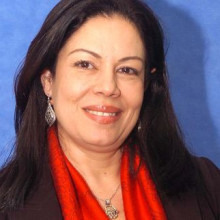
One UN Roundtable
Summary
Since 2020, the “ONE UN Roundtable” of WUF has served as the platform that convenes the United Nations Development System during the session; connecting them with stakeholders necessary to increase coherence of the UN’s work on strategies, policies and programming especially at the country level. WUF sessions can contribute this by facilitating dialogues that enhance common understanding among UN entities on the guidance of the New Urban Agenda on sustainable development and to accelerate the delivery of SDGs.
The roundtable of the 12 th session of WUF will count on the participation of UN entities, Resident Coordinators, multilateral development banks, and national government representatives who require closer coordination to work effectively with pooled resources and align to country level priorities, as agreed in the United Nations Sustainable Development Cooperation Framework (UNSDCF) in partnership with national governments. [1]
The roundtable will build on the collaborative momentum from previous WUF sessions[2], the outcomes of the ECOSOC Financing for Development (FfD) Forum and the Ministerial Declaration of the 2024 High-Level Political Forum (HLPF), allowing a discussion which also align these discussions with the outcomes of the Summit of the Future.
Facing the fact that over 80 per cent of the SDG are off-track towards the 2030 milestone, the global development community need to take note of the evidence that local and regional governments and localization of SDG are effective accelerators of SDGs’ implementation. Subnational authorities are in pivotal role as the designers and executor of local and urban policies territorially tailored to address climate, inequalities, poverty and inadequate housing, rapid migration and other key compounding challenges.
However, local governments cannot deliver on SDG acceleration unless they are engaged in the policy and planning processes through multilevel governance structures and sufficiently financed for policy implementation. With this regard, Advisory Group of the UN Secretary-General on Local and Regional Governments[3]recommended closer engagement and cooperation modalities between the subnational governments and the UN system in countries. The Advisory Group recognized the further potential of UN Resident Coordinator and UN country team cooperation to support national development planning especially through responses to local priorities. Subnational governments were regarded as facilitators for enabling actions that can open entry points to transformative shifts at multiple levels through sustainable development plans, including UN Sustainable Development Cooperation Framework.
Recommendations of the Advisory Group on the stronger engagement of local and regional governments in the national planning and budgeting dialogues included their value-add in partnerships for local financing and investment at scale for achieving the 2030 Agenda, to be further enabled by the reform of international financing architecture. These recommendations were echoed in the Pact for the Future and its call for further work by the UN-SG on the UN system engagement with local and regional governments for more fit-for-purpose global governance
Within this context, the WUF 12 UN Roundtable highlights focus on:
- Forward-looking perspectives on the means of implementation for effective SDG acceleration, in line with the theme of WUF12.
- Strengthening of the vital role of the United Nations Development System, the World Bank, and other multilateral institutions in addressing SDG funding gaps,
- Specific means for delivering to Least Developed Countries (LDCs), Landlocked Developing Countries (LLDCs), and Small Island Developing States (SIDS),
- Articulation of key messages and recommendations for different stakeholder groups on bridging SDG financing ahead of global events, including the Fourth International Conference on Financing for Development (UNFfD4) [4] and the Second World Summit for Social Development
Linkage with WUF12 Theme and Dialogues
The estimated $2.5 to $4 trillion annual financing gap for developing countries in implementing the SDGs is a critical obstacle to global progress.
Development partners have consistently emphasized the need for new modalities for financing, capacity building, and data management to bring the SDGs’ achievement back on track.
Building multisector multilevel global partnerships is essential to enhancing institutional capacities, and scientific evidence and data to guide SDG actions across regions and sectors. This is especially crucial for developing countries, including Least Developed Countries (LDCs), Landlocked Developing Countries (LLDCs), and Small Island Developing States (SIDS).
While several sessions of WUF12 will discuss different angles of SDG financing, most notably the Dialogue 4 on Financing Localization and Localizing Finance, the ONE UN Roundtable will focus on identifying means to strengthen synergies and partnerships between the UN System and development banks to bridge the finance gaps in national SDG acceleration plans, including through Cooperation Frameworks.
Expected outcomes and impact of the session
The main outcomes of the WUF 12 “ONE UN Roundtable” will be:
1. Quantitative - a set of recommendations as a common position on necessary actions to increase synergies in SDG financing supported by representatives of multinational development banks, the UNDS, including the RC System under the coordination of UNDCO, and other development partners fostering a robust collaborative platform,
2. Qualitative – identifying mechanism to create strategic partnerships between the UN, in particular at the country level, and financing institutions towards bridging the financial gap to support joint undertakings in SDGs implementation.
GUIDING QUESTIONS
1. How should the financial gap be prioritized when addressing localized SDG implementation, and what UN-specific methodologies can be recommended to tackle this challenge?
2. How can the UN, at global and country levels, best support local government to be empowered to leverage public and private resources for effective programming at the local level?
3. How can the UN and multilateral development banks coordinate for strategic partnership to advance SDGs at the national and local levels?
4. In view of the above premises, what type of actions can be recommended for the UN development system for effective engagements with partners at different levels to bridge the gaps?
[1] GA resolution A/RES/72/279 of 31 May 2018, on “Repositioning of the United Nations development system in the context of the quadrennial comprehensive policy review of operational activities for development of the United Nations System”, para 9.a
[2] The first session of the ONE UN roundtable took place at WUF 10, hosted by Abu Dhabi/UAE, 3 – 16 February 20220, and followed by the second one at WUF 11, held in Katowice/Poland, held on 26-30 June 2022.
[3] The establishment of Advisory Group of the Secretary-General on Local and Regional Governments was recommended in the Our Common Agenda Report and worked from the 2023 SDG Summit through to the Summit of the Future in September 2024. unhabitat.org/news/26-aug-2024/secretary-generals-advisory-group-on-local-and-regional-governments
[4] The Fourth International Conference on Financing for Development will take place in Sevilla, Spain, in June 2025. The conference is mandated to support reform of the international financial architecture


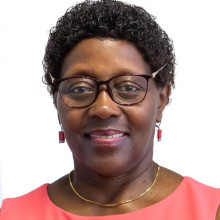
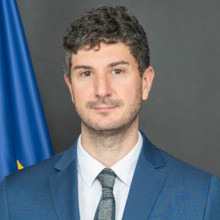

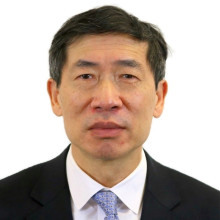
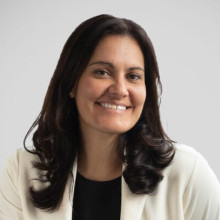
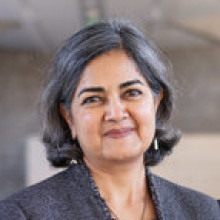
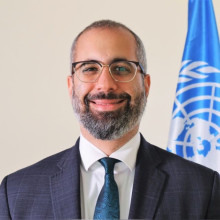

 Streaming on UN WEB TV
Streaming on UN WEB TV